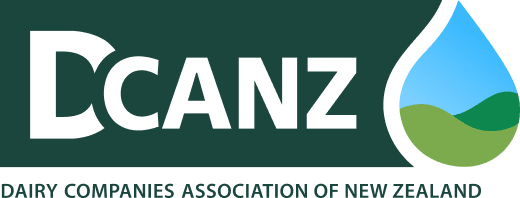The Dairy Companies Association of New Zealand (DCANZ) welcomes the commitment of New Zealand Trade Minister Damien O’Connor to securing a trade deal with the UK which comprehensively removes agricultural tariffs.
Minister O’Connor and UK Trade Minister Truss have announced a move to accelerate the pace of negotiations. DCANZ considers that the ball is in the UK’s court to complete this negotiation in a timely way that is consistent with its ambitions.
“With both countries committed to being leaders in global trade liberalisation and sharing an ambition for a high-quality and comprehensive bilateral agreement that removes tariffs, there is no reason for the market access negotiation to be complicated or protracted” says DCANZ Executive Director Kimberly Crewther.
DCANZ understands that the market access offers the UK has made to date fall short of the ambitions for the agreement.
“The dichotomy between the UK’s political rhetoric and its reported offers for agriculture is deeply disappointing” says Crewther.
DCANZ rejects any suggestion that dairy is a sensitive area for this negotiation. The UK is one of the world’s largest importers of dairy products and these imports largely come from the EU (the world’s largest dairy exporter) on duty free terms under the UK-EU bilateral trade agreement.
“At the heart of this negotiation is the question of how the UK chooses to treat New Zealand. Will it allow New Zealand’s dairy community to participate in this trade on a level playing field? Will British consumers and food manufacturers be given the same opportunity to choose high-quality New Zealand dairy products, produced under equivalent animal welfare standards and with a lower carbon footprint, as they currently have for EU imports?”
“You need look no further than the trade statistics to see the absurdity of any dairy sensitivity claims. In 2019 the UK imported over half a million tonnes of cheese, almost entirely on duty-free terms from the EU. That’s a cheese import volume that is 50% larger than New Zealand’s total exports to all 82 of its current cheese markets.”
The importance of tariff removal should not be underestimated in achieving inclusive trade benefits from this agreement. Ultimately it is the tariff disadvantages faced by New Zealand exporters that prevented even 1 gram of the nearly 8kg of cheese the UK imported per person in 2019 being supplied by New Zealand.
UK High Commissioner Laura Clarke has highlighted the inclusion of a chapter in the agreement on women in trade. The greatest opportunity for the thousands of women involved in New Zealand’s dairy sector to receive real benefits from this agreement will come from tariff elimination.
“Removal of tariffs is the most direct and practical action this FTA could take to lock-in benefits for women in trade. The effectiveness of any other FTA commitments to strengthen trade opportunities for women will be effectively undermined if this tariff elimination prerequisite is not met” says Crewther.
Complete elimination of tariffs on dairy products will also directly benefit the 3% of New Zealand’s small and medium-sized enterprises, which are directly part of the dairy industry, by placing the export value-chains they are part of on a level playing field with their EU counterparts. When this occurs, there will be flow-on benefits for the thousands of other businesses in New Zealand that supply goods and services to the dairy sector.
Taking all tariffs to zero for all agricultural imports produced with equivalent outcome standards has recently been recommended to UK Trade Minister Truss by the UK Agriculture and Trade Commission. Crewther says this FTA is the opportunity for Minister Truss to put that recommended zero-tariff approach for agricultural trade into practice in a timely way.

